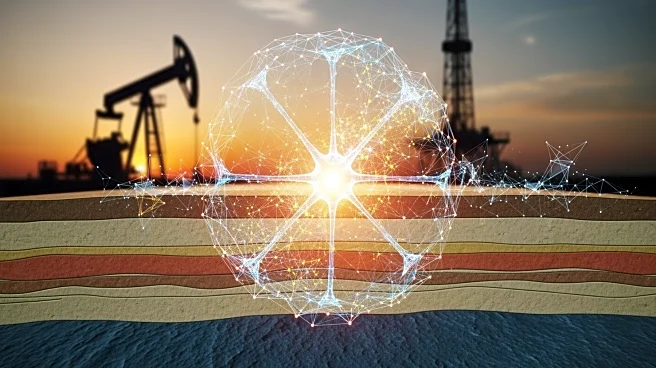What's Happening?
A study published in Nature explores the use of deep learning and self-supervised methods to improve earth subsurface characterization, particularly in the petroleum industry. The research focuses on the Bakken
formation in North Dakota, utilizing a pre-trained deep learning model to identify formation types and enhance data consistency. By harmonizing wellbore logs and employing advanced segmentation techniques, the study aims to improve the accuracy of subsurface characterization, which is crucial for hydrocarbon exploration and production.
Why It's Important?
The application of deep learning in subsurface characterization represents a significant advancement for the petroleum industry. Accurate identification of formation types is essential for efficient hydrocarbon extraction, reducing costs and environmental impact. The use of self-supervised methods allows for better data integration and model generalization, improving the reliability of subsurface predictions. This approach could lead to more sustainable practices in oil and gas exploration, benefiting both the industry and the environment.
What's Next?
The study suggests further exploration of deep learning models in different geological settings to validate their effectiveness. Researchers may collaborate with industry partners to integrate these models into existing exploration workflows, enhancing decision-making processes. The continued development of self-supervised methods could lead to more robust models capable of handling diverse subsurface conditions. As the industry seeks to balance economic growth with environmental responsibility, innovative approaches like this will be crucial for future exploration efforts.
Beyond the Headlines
The use of deep learning in subsurface characterization highlights the broader trend of digital transformation in the petroleum industry. As companies adopt more data-driven approaches, ethical considerations regarding data privacy and environmental impact may arise. The integration of AI and machine learning into traditional exploration methods could lead to a shift in industry practices, emphasizing sustainability and efficiency. Long-term, these advancements may contribute to a more responsible approach to resource extraction, aligning with global efforts to reduce carbon emissions.











